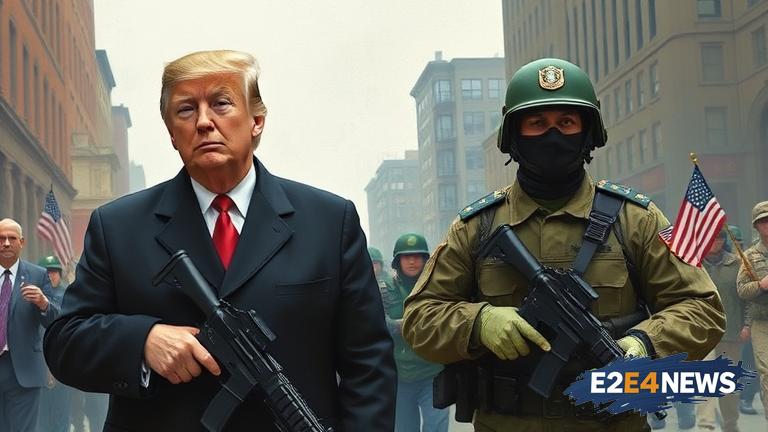The recent surge in crime rates in major cities like Chicago and Washington D.C. has sparked a heated debate between former President Donald Trump and Illinois Governor J.B. Pritzker. Trump has been vocal about his criticism of Pritzker’s handling of the situation, calling for the deployment of the National Guard to combat rising crime. Pritzker, on the other hand, has pushed back against Trump’s suggestions, arguing that the National Guard is not the solution to the complex issue of crime. The two have been engaged in a war of words, with Trump taking to social media to express his frustration with Pritzker’s approach. Despite the disagreement, both sides acknowledge that the crime rate is a pressing concern that needs to be addressed. Chicago, in particular, has seen a significant increase in violent crime, with homicides and shootings on the rise. The city’s police department has been working to implement new strategies to combat the violence, but so far, the results have been mixed. Meanwhile, in Washington D.C., the crime rate has also been increasing, with a notable rise in violent crimes such as robberies and assaults. The city’s mayor has announced plans to increase funding for community programs aimed at reducing crime, but some critics argue that more needs to be done. The debate over the National Guard’s role in combating crime is not new, with some arguing that it is a necessary measure to ensure public safety, while others see it as an overreach of military power. Trump’s call for National Guard deployment has been met with resistance from some lawmakers, who argue that it is not a long-term solution to the problem. Pritzker, meanwhile, has emphasized the need for a more comprehensive approach to addressing crime, including investing in community programs and social services. The governor has also pointed to the need for federal support, arguing that the crime issue is not limited to individual states. As the debate continues, it remains to be seen what steps will be taken to address the rising crime rates in cities like Chicago and DC. Some experts argue that a combination of short-term and long-term solutions is needed, including increased funding for law enforcement and community programs. Others point to the need for a more nuanced approach, one that takes into account the root causes of crime, such as poverty and lack of access to education and job opportunities. The issue is likely to remain a major point of contention in the coming months, with both sides dug in and refusing to budge. Despite the challenges, there are some signs of progress, with community leaders and lawmakers working together to find solutions. In the end, it will likely take a collaborative effort to address the complex issue of crime and ensure public safety. The ongoing feud between Trump and Pritzker serves as a reminder of the deep divisions that exist in the country, but it also highlights the need for leaders to work together to find common ground. As the situation continues to unfold, one thing is clear: the issue of crime will remain a major concern for cities like Chicago and DC, and it will require a sustained effort to address. The National Guard deployment debate is just one aspect of a larger conversation about how to keep communities safe. Ultimately, the solution will require a multifaceted approach that takes into account the unique needs and challenges of each city. By working together and finding common ground, leaders can help to reduce crime and improve public safety. The clock is ticking, and the stakes are high, but with a commitment to collaboration and a willingness to think outside the box, it is possible to make a positive impact. The future of public safety in cities like Chicago and DC depends on it.
